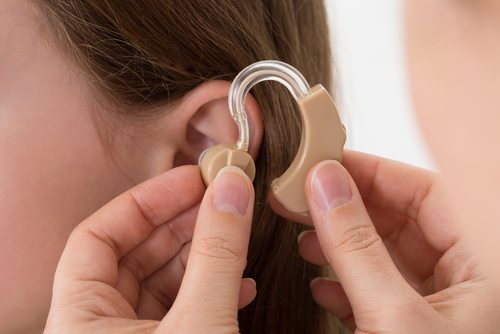According to studies, individuals with a disability are at a higher risk of abusing drugs and alcohol. This is also true for individual who are deaf or hard of hearing. Why is that? Part of this phenomenon can be attributed to the stress of living with such a disability, and also that they might not have the same access to suitable substance abuse treatment programs as other people do.
Addiction Treatment Options for the Deaf
What sort of options does the deaf community have when it comes to addiction treatment? Unfortunately, not many. It is understandably frustrating for the deaf to communicate with others who aren’t hearing impaired. And because of that members of the deaf community are much less likely to seek treatment.
There are limited options for the deaf when considering substance abuse treatment, such as:
- American Sign Language (ASL) Interpreter
The deaf individual can take along an interpreter for traditional treatment. But this is not often a viable solution. Unless the deaf individual has the resources to have a full time interpreter, they cannot always get one when needed during treatment sessions. Also, needing an interpreter may make them feel like an outsider during residential or group treatment, making them less likely to want to continue their sessions.
- Treatment specifically for the Hearing Impaired
This is probably the best treatment option for an individual who is hard of hearing. These programs use visual communication methods, including videos and literature, to conduct treatment. Addiction specialists who are proficient in ASL will be available at these types of treatment programs. Unfortunately these programs are can be difficult to find as they are not readily available throughout the country.
Barriers to Treatment
It comes as no surprise that deaf individuals face a number of obstacles when it comes to obtaining addiction treatment. The biggest barrier is of course that the hearing impaired feel unable to effectively communicate with other people, as the deaf often rely on visual communication and traditional addiction treatment does not incorporate that. Some other common barriers can be:
- Attitude and perceived stigma surrounding addiction treatment
- Career or family responsibilities
- Communication problems when looking for treatment
- Financial difficulties and lack of insurance
- Inability to find addiction treatment that caters to the hearing impaired
So where can the deaf go to find suitable addiction treatment? There are some starting points:
- Doctor
The first and easiest place to ask for treatment options is with the individual’s own doctor. Most medical doctors are able to diagnose substance abuse disorders and will also be able to help the individual find appropriate treatment.
- Local Disability Offices
Organizations catering to the deaf and people with other disabilities are a good place to turn to when the deaf individual is looking for treatment. These organizations can often guide towards the right places.
- SAMHSA
The Substance Abuse and Mental Health Services Administration website has a locator for treatment facilities that can be used to find programs. The search can also be filtered to show only those facilities that cater to the hearing impaired.
The Villa offers many resources for addiction treatment. We understand that recovery is hard work and that you need support to get through it. Call us to find out how we can get you started.

